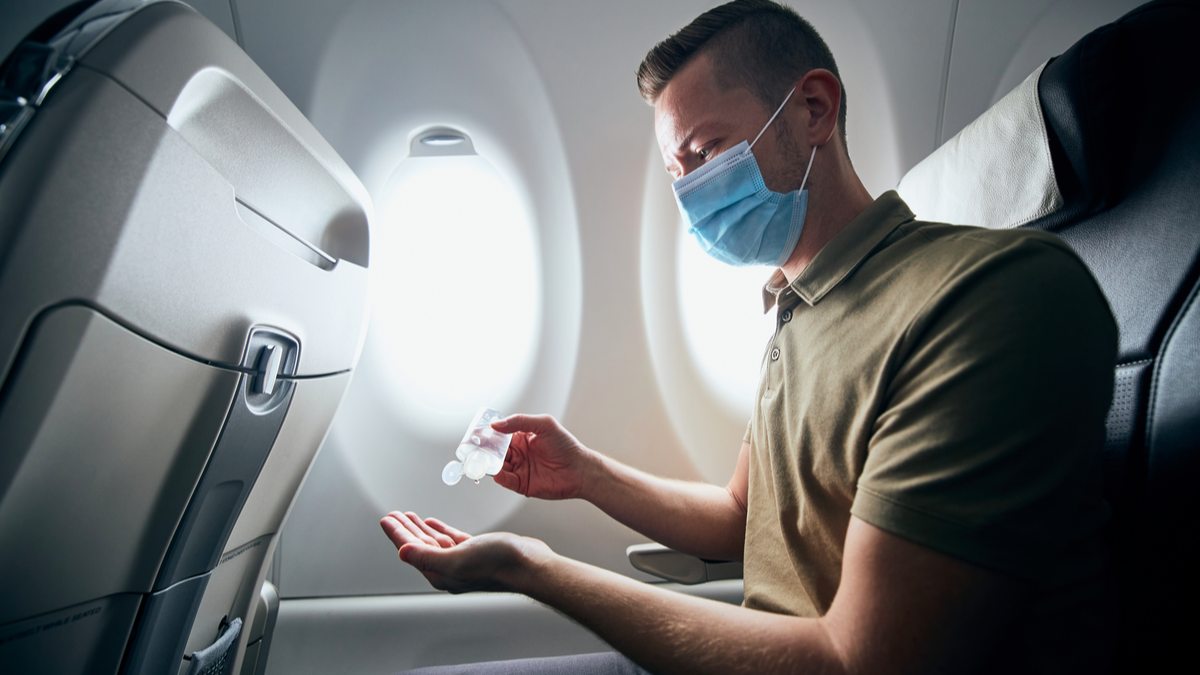Flying can be an exciting and convenient way to travel, especially for college students who are heading home for breaks or traveling for study abroad programs. However, air travel can also expose you to a variety of germs and illnesses, particularly when confined to a small space with many people. Concerns over health risks, like COVID-19 and other infectious diseases, have only heightened the importance of staying healthy while flying.
Whether you’re flying to a nearby city for a conference or traveling internationally for a study program, these tips will help you stay healthy on your next flight, ensuring that you arrive feeling your best.
1. Stay Hydrated for Optimal Health
Maintaining hydration is crucial when flying, especially for college students who need to stay alert and energized throughout their travels. Airplanes are notorious for having low humidity levels, which can dry out your mucous membranes, making it harder for your body to flush out germs. Dehydration can also lead to fatigue, dry skin, and headaches, leaving you feeling drained by the time you land.
To combat this, be sure to drink plenty of water before and during your flight. Carry a refillable water bottle through security to ensure you stay hydrated without the risk of consuming sugary beverages or unnecessary chemicals. Keep sipping water throughout the flight to keep your immune system working effectively, helping you avoid common colds and illnesses during your travels.
2. Use the Restroom Before Boarding
When traveling by plane, many passengers try to avoid using the cramped airplane restroom as much as possible. However, avoiding the need to use it during the flight can help you avoid exposure to bacteria. Airplane toilets can be breeding grounds for germs, especially during the flush cycle, as it can send microorganisms flying into the air. The enclosed space and proximity to the toilet increase the risk of exposure to these harmful bacteria.
To minimize this, make it a point to use the restroom before boarding. This will help you avoid unnecessary trips to the airplane restroom and limit your exposure to airborne bacteria during your flight. Planning ahead by using the airport facilities can help you avoid feeling uncomfortable or stressed about bathroom hygiene.
3. Bring Your Own Blanket and Pillow for Better Hygiene
Most airlines have reduced or eliminated providing blankets and pillows due to the potential spread of germs, especially following health concerns like the H1N1 virus. The blankets and pillows provided by airlines may not always be cleaned thoroughly, increasing the risk of exposure to bacteria or viruses.
For your health and comfort, consider packing your own lightweight blanket and a neck pillow for the flight. This will not only keep you comfortable but also help you avoid using potentially germ-ridden items that could be shared by many passengers. Be sure to keep them clean by washing them regularly.
4. Eat Before Boarding to Avoid Risky Airline Food
Airline food is often criticized for its poor quality and potential health risks. Studies have shown that airline catering facilities have been found with unsanitary conditions, including bacteria like listeria and pests like cockroaches. As a college student, the last thing you want is to deal with foodborne illness while traveling.
For a healthier option, try to eat before boarding by choosing a nutritious meal at an airport restaurant. If you’re traveling on a tight schedule, consider bringing along your own healthy snacks, such as nuts, granola bars, or fresh fruit, to avoid consuming potentially contaminated airplane food.
5. Avoid Alcohol to Support Your Immune System
While it may seem tempting to have a drink to relax, alcohol can actually work against you when it comes to maintaining good health during your flight. Alcohol is a diuretic, which causes your body to lose more fluids and increases dehydration. Combined with the already low humidity on planes, alcohol can weaken your immune system and make you more susceptible to illnesses, including colds and viruses.
For better student health, try to avoid alcohol during the flight. If you find it difficult to relax without a drink, consider drinking a chamomile tea or taking melatonin to calm your nerves. These options are gentler on your body and can help ensure you stay hydrated while also aiding in a restful journey.
6. Boost Your Immunity Year-Round
Ultimately, staying healthy while flying is also about maintaining your overall health and immune system. A strong immune system is your best defense against airborne illnesses, which are more prevalent in confined spaces like airplanes.
To improve your immunity, focus on maintaining a healthy lifestyle year-round. Eat a balanced diet with plenty of fruits and vegetables, get regular exercise, and get enough sleep to keep your body strong. Regular hand-washing and avoiding close contact with sick individuals can also help you avoid illness during travel.
While flying can be a risky environment for your health, especially as a college student with a busy schedule, there are steps you can take to stay healthy while traveling. By staying hydrated, using the restroom before boarding, packing your own blankets and pillows, eating healthy food, and avoiding alcohol, you can reduce your chances of getting sick on your flight. Additionally, keeping a strong immune system year-round through proper nutrition, exercise, and sleep will ensure you stay at your best, no matter where you’re flying.
Student wellness is key to achieving success, both in and out of the classroom, so make your health a priority during your travels. Safe and healthy flying means that you can focus on your college life and studies without being sidelined by illness. Safe travels!





